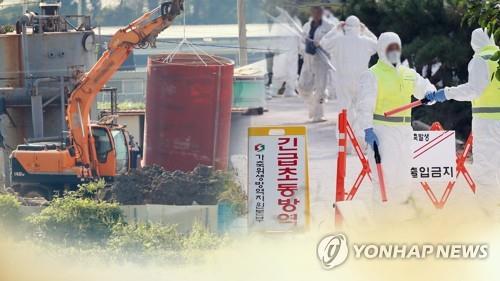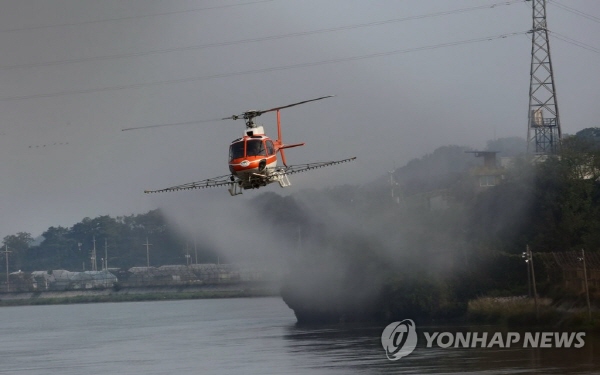
South Korea on Wednesday confirmed the 10th case of African swine fever (ASF), sparking concerns of a massive spread of the fatal animal disease from the country's northern areas.
It marked the first confirmed case since Friday.
The latest case came from a farm in Paju, north Gyeonggi Province, bordering North Korea. It was the third ASF case from the town.
A separate suspected case was reported from the same region earlier in the day. The test result is set to be delivered later in the day.
Since mid-September, South Korea has experienced a spate of ASF cases, five of them on Ganghwa Island in Incheon.
Following the new outbreak, South Korea's agricultural ministry announced a 48-hour lockdown on all farms of Gyeonggi and Gangwon provinces, along with Incheon, effective as of 3:30 a.m.
Although ASF is not harmful to people, it is fatal to pigs. There is no current cure, making culling the affected pigs the only viable option to prevent the spread of the virus.
Quarantine officials have been culling pigs within a 3-kilometer radius of infected farms.
The ministry said it had culled about 85,000 pigs as of Tuesday morning. The total number of pigs slaughtered or to be culled is set to hover above 100,000 following the latest outbreak -- accounting for roughly 1 percent of all pigs being raised in the country.

So far, all confirmed cases have been reported in areas adjacent to the border with North Korea. Suspected cases reported from south of Seoul all tested negative.
The first-ever case in South Korea came about four months after North Korea reported its first confirmed case of the disease at a farm near its border with China to the World Organization for Animal Health.
South Korea has been struggling to find what has brought the virus into the country, with possibilities including contaminated wild boars or water from the North.
Quarantine authorities have been on high alert because of Typhoon Mitag, which is expected to bring heavy rain and strong winds to southern parts of the country this week. Heavy rains may hinder quarantine operations as they clean away disinfectants already spread on the ground near pig farms and related facilities.
The ministry said it would immediately reapply disinfectants to local pig farms as soon as the typhoon moves out of the country. (Yonhap)

